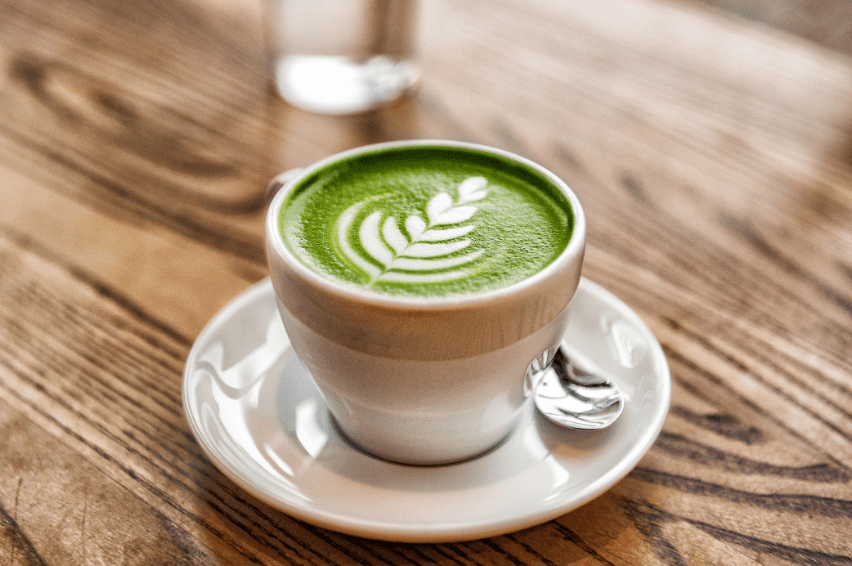
Making the Switch to Matcha
I was gifted a matcha set up over the holidays. To be honest, I’ve been iffy about the grassy taste of matcha and never really adopted the whole green tea thing. For years, I’ve enjoyed a good strong cup of coffee in the AM. I do believe in the antioxidants of coffee and find the caffeine helpful (if not essential).
Lately, I’ve been more curious about matcha and more open to trying it.
I fooled around with adding different ingredients and have found a good combo that I finally like. Now, I actually look forward to my morning matcha and have replaced some coffee with matcha tea.
Matcha vs. Green Tea
Matcha is a form of green tea. The young leaves of the Camellia sinensis plant is green tea and the stem and veins and the leaves create matcha. For matcha, the plant is shaded from sunlight for 20-30 days before harvest. Because of the shade, the plant makes more chlorophyll which contributes to more antioxidants and caffeine. It is considered a concentrated form of green tea. Both versions of green tea are good for you.
My Favorite Recipe
This makes a nice big cup of bright green tea and gives you a little zip in the morning.
4 ounces unsweetened almond milk
6 ounces water
2 shakes cinnamon
1 tsp maple syrup
1 tsp matcha powder
Heat, froth and enjoy.
Caffeine Content
Green tea, and specifically matcha, both contain caffeine. One serving of matcha, made from 1 teaspoon of powder, is approximately 70 mg of caffeine. One cup of green tea has 28-35 mg of caffeine. Black tea has 47mg caffeine per cup. A cup of coffee contains about 95 mg of caffeine.
A Natural Relaxer
Matcha contains L-theanine, which is an amino acid that is a calming agent for the nervous system. L-theanine in matcha gives you a gentle alertness without causing the drowsiness that follows coffee consumption and creates a milder and longer lasting buzz than coffee. Matcha increases GABA, one of our feel-good brain hormones which improves mood, memory and concentration. Interestingly, L-theanine has been shown to increase glutathione, which is a master antioxidant.
Antioxidants + Vitamins
Newer research has begun to highlight big health benefits of green tea + matcha, touting the antioxidants, vitamins and minerals, and specifically nutrients that support metabolic health and boost cognitive function. Both have very large doses of the powerful and well-researched polyphenol antioxidant catechin (epigallocatechin gallate/known as EGCG).
Catechin EGCG
EGCG has been studied extensively in animals. It has been shown to reduce inflammation alongside lots of other benefits:
- Help maintain healthy arteries + support heart health
- Promote cell repair
- Control blood sugar and increase insulin sensitivity
- Lower LDL cholesterol + increase HDL cholesterol
- Increase fat burning
- Improve acne and overall skin health by reducing sebum production
- Reduce stress + anxiety
Brain Health
Matcha is packed with vitamin K and lutein which has been associated with improved attention and memory.
Weight Loss
Lots of weight loss supplements contain green tea. I’ve always found that curious, but now I understand it is partly the caffeine and partly the polyphenols that support fat metabolism.
Adverse Side Effects
Because matcha is strong, it’s best to limit consumption to no more than 2 cups per day.
Given how good green tea and matcha is for you, I am committing to include it in my weekly routine for several months. So far, I’ve gotten used to the taste and I’m enjoying the relative lightness of the drink versus coffee. Also, I can feel the gentle boost and alertness from the compounds, in a slightly different way than coffee provides.
Try it! Let’s see if you like it too.
Our Natural Weight Loss Program’s low and slow philosophy allows you to create your new habits and then solidify them over time as you lose pounds. Reach out and see if our programs are right for you. Schedule a free consultation with a holistic nutritionist.
